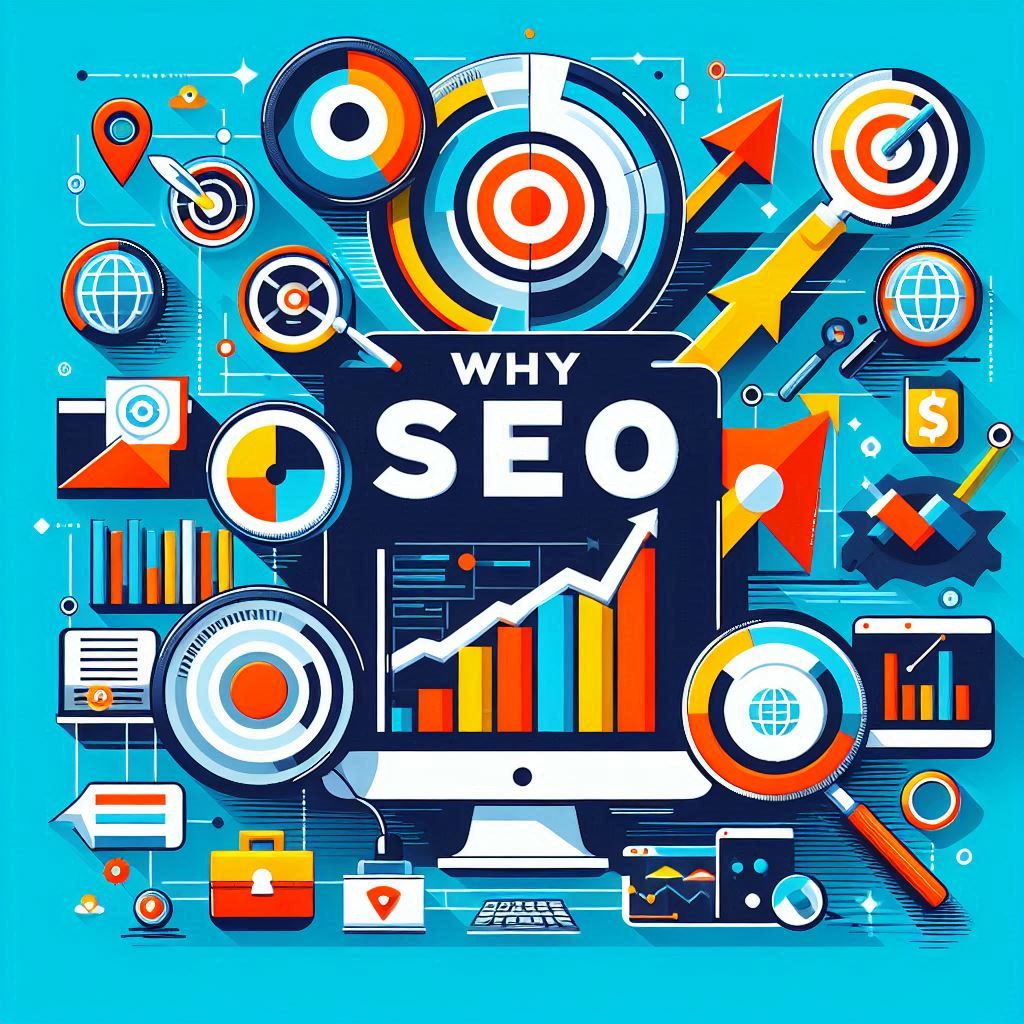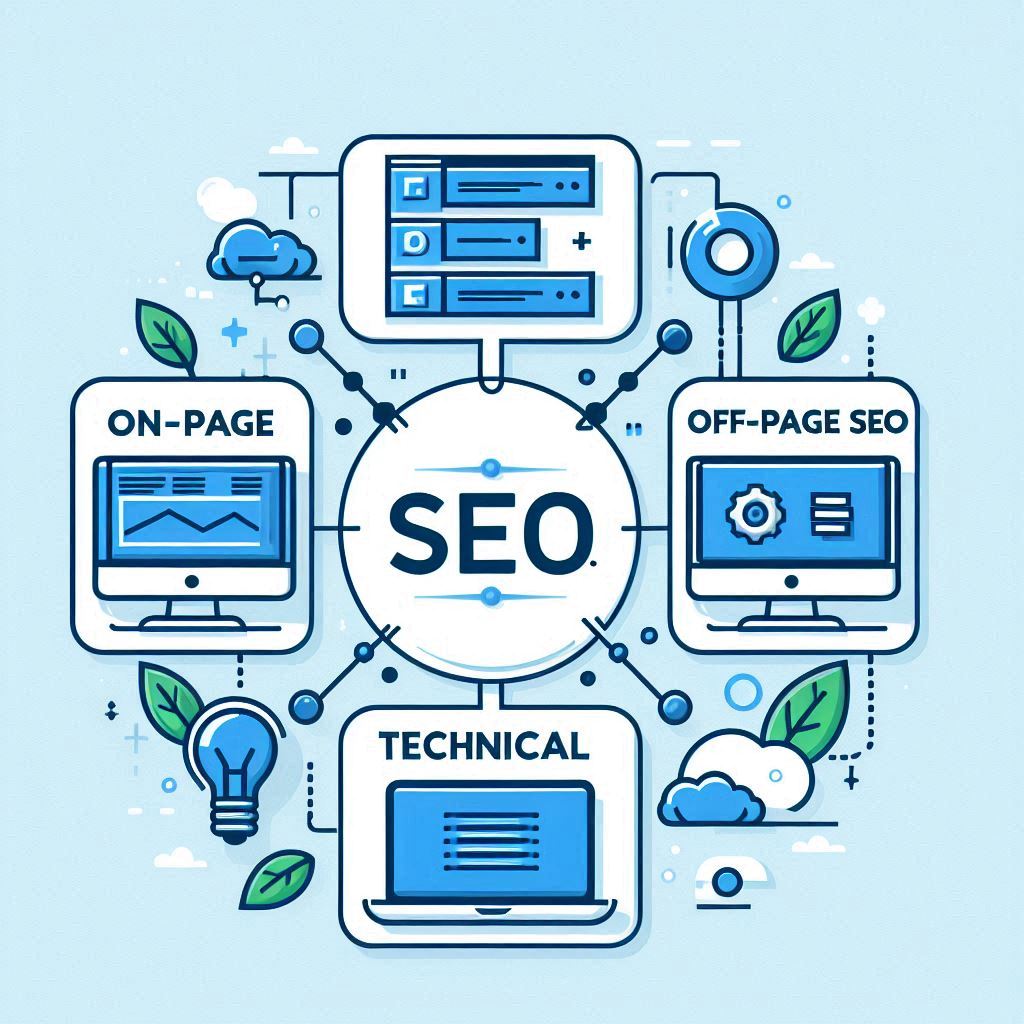Why SEO is Crucial for Business Growth: Unlocking Online Success

In today’s digital age, where competition is fierce and the online marketplace is vast, SEO (Search Engine Optimization) is more than just a trendy buzzword—it’s a fundamental strategy for business growth and success. At its core, SEO is about making your website more visible to the right people: potential customers who are actively searching for what you offer. Let’s dive into why SEO is crucial for businesses and marketers, and how it can transform your online presence.
1. Boosts Your Online Visibility and Drives Quality Traffic
Think of your website as a storefront on a busy street. SEO is like the bright, attractive signage that draws people in. When your website ranks higher on search engines like Google, you increase your chances of being discovered by users searching for specific products, services, or information. Higher visibility leads to more clicks and, ultimately, more potential customers.
Real-World Example:
A local yoga studio in a competitive city can benefit immensely from SEO. By optimizing their website for keywords like “yoga classes near me” or “beginner yoga in [City Name],” they can attract local yoga enthusiasts actively looking for classes. Without SEO, their site might get lost in the crowd, while competitors who have invested in optimization capture all the attention.
2. Builds Trust and Establishes Authority
Ranking high on search engines is akin to getting a seal of approval from Google. Users trust search engines to provide the best results, so when your site appears at the top, it signals to users that your business is a credible, authoritative source. This trust can significantly influence user behavior, leading to higher engagement and conversions.
Real-World Example:
Consider a financial consulting firm that consistently appears on the first page for “best financial advisors in [City Name].” Potential clients are likely to view this firm as more trustworthy and capable than those on subsequent pages. This perception of authority can result in more inquiries and client conversions, as users are more inclined to choose a business that appears reputable and reliable.
3. Enhances User Experience
SEO is not just about pleasing search engines; it’s about creating a better experience for your visitors. Search engines prioritize websites that are fast, mobile-friendly, and easy to navigate. By optimizing these aspects, you’re not only boosting your SEO but also ensuring that visitors have a positive experience, leading to longer site visits, lower bounce rates, and higher conversions.
Real-World Example:
An online fashion retailer that focuses on optimizing its website for speed and user-friendliness will likely see an increase in sales. For example, ASOS, a popular online clothing store, invests heavily in site speed and mobile optimization, providing a seamless shopping experience that keeps customers coming back. This attention to detail not only improves their SEO but also enhances customer satisfaction and retention.
4. Offers Long-Term Benefits and Strong ROI
Unlike paid advertising, where your visibility disappears once your budget runs out, SEO provides sustainable, long-term benefits. By consistently optimizing your website, you can maintain or even improve your rankings, drawing in organic traffic month after month without ongoing ad costs. This makes SEO a cost-effective marketing strategy with a strong return on investment (ROI).
Real-World Example:
A SaaS (Software as a Service) company that invests in SEO to rank for keywords like “best project management tools” can attract steady, organic traffic over time. This continuous influx of visitors can lead to a consistent stream of new sign-ups and subscriptions, providing a much higher ROI than relying solely on short-term paid ad campaigns.
5. Reaches Customers at Every Stage of Their Journey
SEO isn’t just about attracting visitors; it’s about engaging them at every step of their journey. By creating a mix of content that targets users from the awareness stage to the decision stage, you can guide potential customers through the buying process, increasing your chances of conversion.
Real-World Example:
A home improvement company can optimize its website for different stages of the buyer’s journey. For example, blog posts about “how to choose the right paint color” cater to users in the research phase, while landing pages for “professional painting services in [City Name]” target those ready to make a decision. This strategy ensures the company captures potential clients regardless of where they are in their decision-making process.
6. Keeps You Ahead of the Competition
In today’s competitive digital landscape, not having an SEO strategy is like opening a store without a sign. SEO helps you stay competitive by keeping you visible to potential customers. If you’re not doing SEO, you can be sure that your competitors are, and they’re gaining a competitive edge.
Real-World Example:
Two fitness apps offer similar features, but only one invests in SEO. By optimizing for keywords like “best fitness app for beginners” and “customizable workout plans,” the app that focuses on SEO consistently outranks its competitor in search results. This visibility advantage drives more downloads and user engagement, leaving the competitor struggling to catch up.
SEO is not just an option for businesses today; it’s a necessity. It helps you increase visibility, build trust, enhance user experience, and provide long-term benefits—all of which are crucial for attracting and retaining customers in a highly competitive online marketplace. By investing in SEO, businesses can ensure they are not just part of the conversation but leading it, capturing more market share, and driving sustainable growth. If you want to thrive online, SEO is your roadmap to success.

